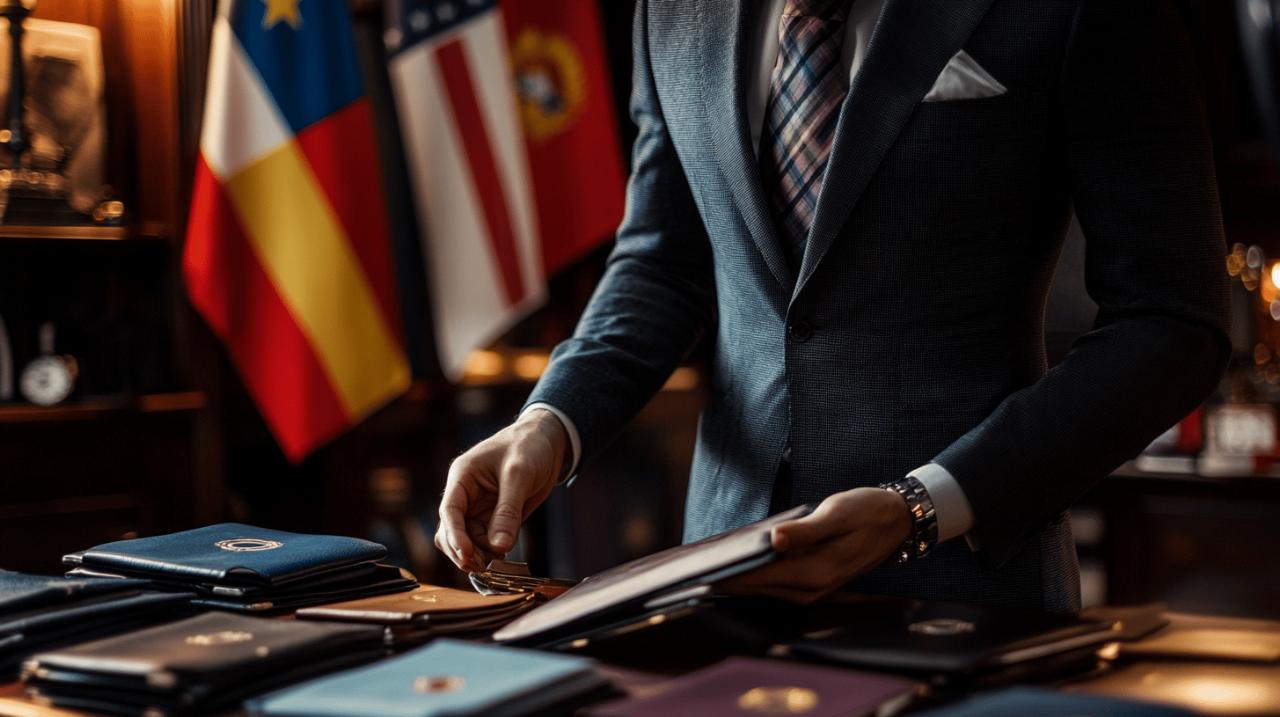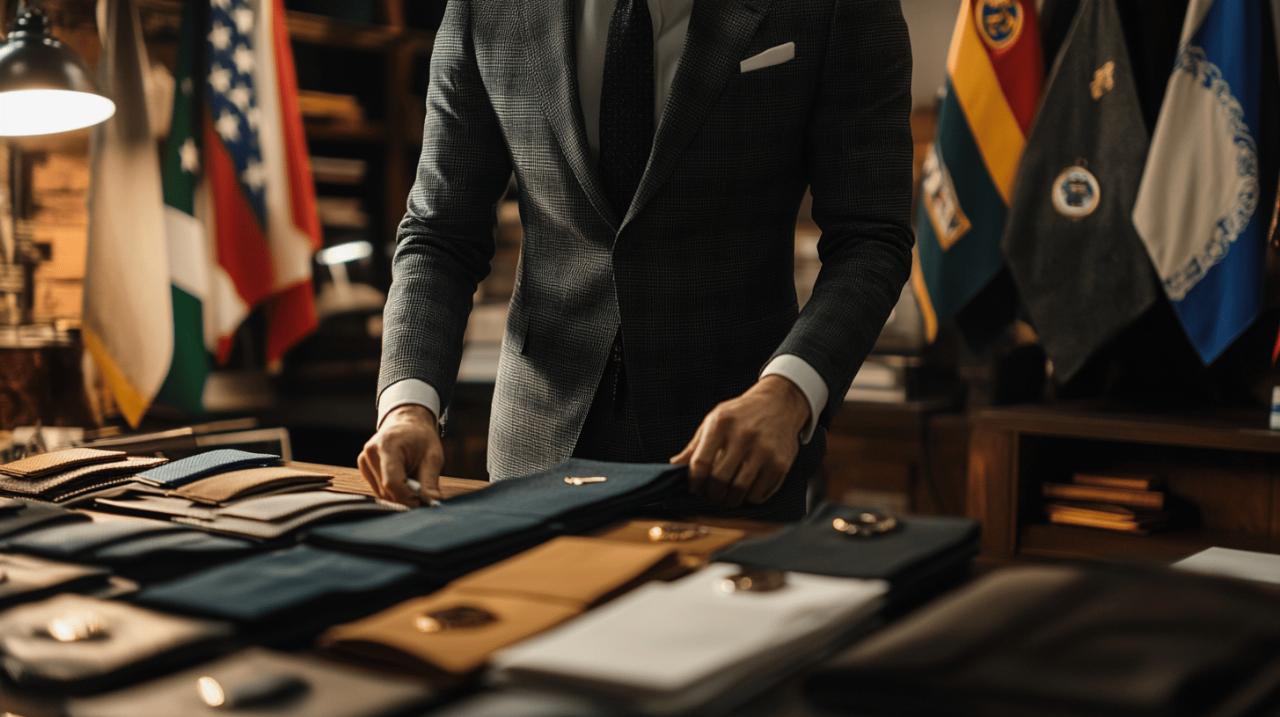The Luxury Dilemma: Ralph Lauren and Counterfeit Goods – Analysing International Regulations and Their Effectiveness
In the world of high-end fashion, few names carry the weight and prestige of Ralph Lauren. Since its inception, this iconic brand has been synonymous with luxury, quality, and a distinctive American aesthetic that resonates globally. However, beneath the polished surface of designer boutiques and glossy advertisements lies a persistent threat that plagues not just Ralph Lauren, but the entire luxury industry: counterfeiting.
Understanding the Counterfeit Crisis in Luxury Fashion
The problem of fake products has become increasingly sophisticated in recent years, evolving from obvious knock-offs to carefully crafted replicas that can fool even discerning eyes. For a brand like Ralph Lauren, established 1967, this presents a significant challenge to both business operations and brand integrity. The counterfeit market doesn't just affect profit margins; it undermines decades of careful brand building and quality assurance that began when Ralph Lauren opened his first shop in California in 1971.
The scale of ralph lauren counterfeiting worldwide
With a global presence spanning over 50 countries, Ralph Lauren faces an enormous challenge in monitoring and combating counterfeiting activities across diverse markets. Fake Ralph Lauren products range from the iconic polo shirts to luxury accessories, creating a parallel market that capitalizes on the brand's reputation without adhering to its quality standards. These counterfeiters operate through various channels, including street markets, unauthorized online retailers, and increasingly sophisticated e-commerce platforms that can appear legitimate to unsuspecting consumers.
Impact on Brand Value and Consumer Trust
The proliferation of counterfeits extends beyond financial implications. When consumers unknowingly purchase fake Ralph Lauren products, their experience with inferior quality items damages their trust in the brand. Moreover, counterfeiting constitutes serious criminal activity with wider societal impacts. It leads to job losses in legitimate industries, creates unsafe working conditions in unregulated manufacturing facilities, and often funds larger criminal networks. For Ralph Lauren, maintaining authenticity is not merely about protecting profits—it's about preserving the very essence of what makes the brand special in a marketplace increasingly saturated with imitations.
International legal frameworks protecting luxury brands
The fight against counterfeiting relies heavily on robust legal frameworks that transcend national boundaries. As luxury brands operate globally, protection must extend across jurisdictions to be effective. Various international treaties and agreements have been established to provide standardized approaches to intellectual property protection, particularly focusing on trademark infringement that directly impacts brands like Ralph Lauren.
Key treaties and cross-border enforcement mechanisms
International cooperation forms the backbone of anti-counterfeiting efforts. Ralph Lauren actively participates in organizations such as the International Trademark Association, which works to advance trademark protection globally. These collaborative efforts are essential because counterfeiting operations often span multiple countries—products might be manufactured in one region, distributed through another, and sold in several more. Without coordinated enforcement mechanisms, addressing these complex networks would be virtually impossible for any single brand or country.
Customs operations and border control measures
One of the most effective points of intervention in the counterfeiting supply chain is at national borders. Ralph Lauren works closely with customs officials worldwide to help identify and seize fake merchandise before it enters legitimate markets. These partnerships involve training customs agents to recognize authentic products, sharing information about known counterfeiting operations, and creating systems for rapid verification. The brand combines these efforts with legal action against known counterfeiters, creating a multi-faceted approach to protection that addresses both supply and distribution channels.
Ralph lauren's anti-counterfeiting strategies
Recognizing the serious threat posed by fake products, Ralph Lauren has developed a comprehensive anti-counterfeiting team dedicated to protecting the brand's integrity. This specialized unit collaborates with law enforcement agencies, legal experts, and technology specialists to combat the production and distribution of counterfeit goods. Their approach combines proactive prevention with aggressive enforcement to disrupt counterfeiting networks at various points.
Technological innovations in product authentication
Technology plays an increasingly important role in the authentication of genuine Ralph Lauren products. The company employs various security features that make counterfeiting more difficult and verification more accessible. While specific technologies remain confidential for security reasons, luxury brands typically use combinations of visible and hidden markers, from specialized tags and labels to embedded microchips and unique serial numbers. These features allow both retailers and consumers to verify legitimate purchases and distinguish them from fakes.
Legal action and brand protection initiatives
When prevention fails, Ralph Lauren pursues legal remedies against counterfeiters. The company actively investigates reports of fake products and takes appropriate legal action against manufacturers, distributors, and sellers of counterfeit goods. Additionally, Ralph Lauren educates consumers about the importance of purchasing through authorized retailers—whether that means official Ralph Lauren shops, their website, or verified retail partners. The brand explicitly warns against purchasing from unofficial channels like market stalls or unverified online auctions, where the risk of encountering counterfeits is significantly higher.
Evaluating regulatory effectiveness and future challenges
 Despite extensive efforts from brands and regulatory bodies, the fight against counterfeiting faces persistent challenges. The effectiveness of current regulations varies significantly across different regions, with enforcement particularly difficult in areas with limited resources or competing priorities. For Ralph Lauren and similar luxury brands, this creates an uneven landscape of protection that counterfeiters can exploit.
Despite extensive efforts from brands and regulatory bodies, the fight against counterfeiting faces persistent challenges. The effectiveness of current regulations varies significantly across different regions, with enforcement particularly difficult in areas with limited resources or competing priorities. For Ralph Lauren and similar luxury brands, this creates an uneven landscape of protection that counterfeiters can exploit.
Gaps in current enforcement systems
Even the most comprehensive regulatory frameworks suffer from implementation gaps. Enforcement agencies often lack sufficient resources to investigate and prosecute counterfeiting operations, particularly when these networks operate across multiple jurisdictions. Additionally, penalties for trademark infringement vary widely between countries, creating safe havens where counterfeiters face minimal consequences. Ralph Lauren encourages consumers to report suspicious products through dedicated channels like their counterfeiting reporting email, but identifying and dismantling large-scale operations requires coordinated international effort beyond what individual reporting can achieve.
Emerging Trends in Digital Counterfeiting and E-commerce
The digital marketplace has transformed how counterfeit goods are marketed and sold. Social media platforms, third-party marketplaces, and direct-to-consumer websites have created new channels for counterfeiters to reach potential customers while maintaining anonymity. These digital avenues present unique challenges for trademark protection, requiring brands like Ralph Lauren to adapt their authentication and enforcement strategies continuously. As technology evolves, so too do the methods used by counterfeiters, creating an ongoing cycle of innovation and response that defines the modern anti-counterfeiting landscape.
The consumer's role in combating counterfeit ralph lauren products
When it comes to the fight against fake Ralph Lauren goods, consumers play a vital role. The iconic American brand, established 1967 with its first shop opening in California in 1971, now maintains a global presence across more than 50 countries. This widespread popularity has unfortunately made Ralph Lauren a prime target for counterfeiters seeking to profit from the brand's prestigious reputation.
Counterfeiting isn't just about selling knock-off clothing—it's a serious criminal activity that results in job losses, creates unsafe working conditions, and often funds organised crime. To protect their brand integrity, Ralph Lauren has developed a dedicated anti-counterfeiting team that works alongside law enforcement, customs officials, and legal experts to combat this issue. The company also participates in industry protection groups like the International Trademark Association to strengthen their trademark protection efforts.
Spotting the Difference: Authentication Guide for Shoppers
Recognising authentic Ralph Lauren products requires attention to detail. Genuine items feature consistent stitching, proper logo placement, and high-quality materials. The iconic polo player emblem should be crisp and well-defined, not blurry or misshapen. Labels should display clear text without spelling mistakes, and garment tags must include appropriate manufacturing information.
Price can be a telling indicator—if a deal seems too good to be true, it likely is. Authentic Ralph Lauren products reflect their premium status through appropriate pricing. Be especially wary of items sold through unofficial channels like market stalls or unverified online auctions, as these are common sources of fake products. The brand specifically notes that they do not sell through these unofficial avenues.
Supporting legitimate channels: importance of authorized retailers
The most reliable way to ensure authenticity is by making legitimate purchases through authorized retailers. Ralph Lauren explicitly recommends buying directly from their official shops, their website, or recognised retail partners. These channels guarantee you're receiving genuine products while supporting the brand's efforts against counterfeiting.
Should you come across suspected fake Ralph Lauren merchandise, the brand encourages reporting these instances directly to their anti-counterfeiting team via email at RL-Counterfeits@ralphlauren.com. Ralph Lauren does not offer authentication services for items purchased from unauthorised sellers, which further emphasises the importance of buying through proper channels. By supporting legitimate retail options and reporting suspicious products, consumers become active participants in protecting the integrity of this luxury brand that has defined American style since 1967.
